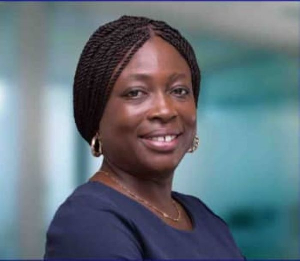- Home - Entertainment
- Lifestyle News
- Entertainment Videos | TV
- Year In Review
- Music News
- Entertainers
- Entertainment Archive
- Entertainment Photos
- Jokes
- Entertainment Headlines
- Ameyaw Debrah
- Brown GH
- Celebrities Buzz
- GH Base
- Ghana Celebrities
- Gh Gossip
- GH Page
- GH Splash
- Hot Gossip GH
- YEN

Politics of Friday, 20 December 2019
Source: ghananewsagency.org
Don’t create ‘artificial’ electoral hotspots - political parties told
Reverend Canon Okaijah Bortier, the Chairman of the Inter-Party Dialogue Committee (IPDC), has called on political parties to desist from creating ‘artificial’ electoral hotspots to ensure effective management of already identified ones.
He said even though there were credible information about the existence of real electoral hotspots, political parties had resorted to the creation of ‘artificial’ ones, a situation, he said, could create tensions and hinder the effective delivery of free and fair elections, when not properly managed.
Rev. Bortier made the call on Thursday at an IPDC meeting organised by the National Commission for Civic Education (NCCE).
The meeting, organised with support from the United Nations Development Programme (UNDP), was aimed at soliciting ideas from stakeholders towards the development of an action plan and strategies for effective management of election-related issues.
It was attended by political parties’ representatives, faith-based organisations, civil society organisations, traditional leaders and officials from the Ghana Police Service, among others.
“Even though there is a drawn map for some identified hotspots, some of them are politically induced, which shouldn’t have been. Ayawaso West Wuogon is one and that is because until the by-election Ayawaso has never been a hotspot,’’ Rev. Bortier said.
“We have to talk to the political parties to make them understand that they should not create artificial hotspots, and new ones because we want people to manage the old ones that is the most important thing.’’
He also urged political parties to prioritise the security of the nation and ensure that peace reigned even after the elections to facilitate national development.
Established in 2012, the IPDC serves as a platform for dialogue and collating views from stakeholders and also an intermediary Committee for dispute resolution.
The Committee sought to monitor, investigate breaches of electoral rules and regulations and resolve conflicts and misunderstandings before, during and after elections to enhance political, economic and social progress and stability.
It comprises political parties, religious groups, civil society organisations, security services, and media orgainsations.
Mrs Lucille Hewlett Annan, the Greater Accra Regional Director of NCCE, said the meeting formed part of the Commission’s efforts at educating electorates on the impending elections to ensure fairness and transparency.
She said the commitment from political parties remained a challenge in ensuring that the Committee delivered on its mandate and urged them to show more interest to ensure that decisions taken by the Committee were implemented.
Mrs Annan further urged leaders of political parties, religious organisations, civil society organisations and the electorate to collaborate their efforts to eradicate minor electoral conflicts.
She pleaded with the Government to ensure that it made funds available to enable the NCCE and IPDC deliver on their mandates.
Rt. Rev. Samuel K. Osabutey, the Chairman of the Greater Accra Regional Peace Council, urged the Committee to build the capacities of its members to enable them to contribute meaningfully towards achieving a free and fair elections.
While cautioning political parties’ leadership, leaders of some faith- based organisations and individuals against making divisive statements, he urged security agencies and other mandated state institutions to bring anyone who made such statements to order to ensure peace and stability.











